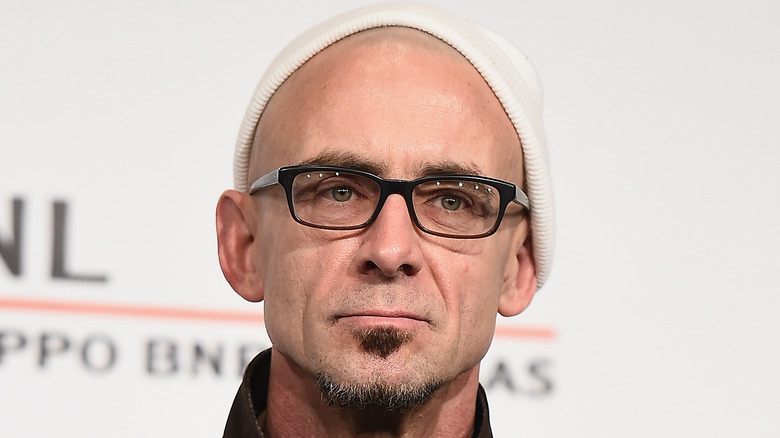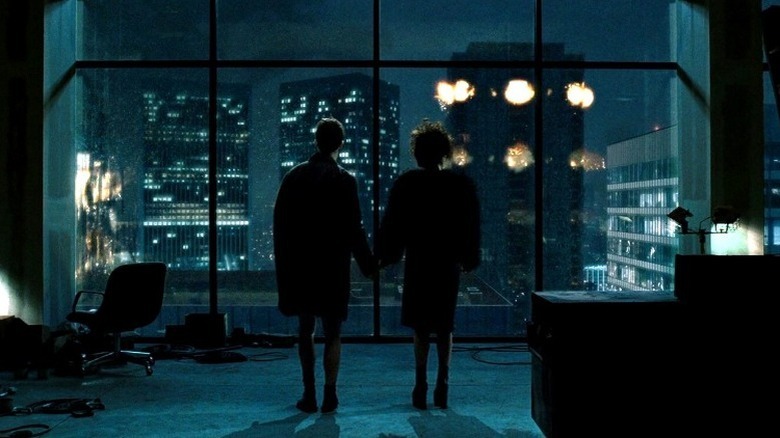Chuck Palahniuk Makes A Hilarious Point About The Censored Chinese Fight Club Ending
In 1999, filmmaker David Fincher managed to do the unimaginable: adapt the work of author Chuck Palahniuk for the screen. For a while, "Fight Club" was a black sheep script, making the rounds but gaining no traction. Prior to Fincher's involvement, notable directors such as Peter Jackson, Danny Boyle, and Buck Henry turned down the project. Most Hollywood studios passed on it, as Palahniuk's book was deemed impossible to translate into motion picture form (via Elliot Chan). It's essentially a story about one man's inner monologue, so not the most obvious cinematic material. However, Fincher relished the challenge, and the rest is history.
These days, "Fight Club" is regarded as a cult classic. The themes pertaining to commercialism, social unrest, and toxic masculinity are as topical in contemporary times as they were in the 1990s. Furthermore, Fincher's unique visual style, coupled with the excellent performances of an A-list cast scoring home runs, will always be appreciated by movie buffs. That being said, some territories haven't been happy with Fincher's vision for the psychological thriller, including one notoriously heavy-handed group of cultural censors.
The Chinese version of "Fight Club" has a different ending than the original theatrical cut. But Chuck Palahniuk isn't getting too bent out of shape about it.
The Chinese ending of Fight Club is closer to the original
The closing moments of David Fincher's "Fight Club" are very bizarre. The Narrator (Edward Norton) sticks a gun in his mouth and gets rid of his cult leader alter-ego, Tyler Durden (Brad Pitt). After that, he proceeds to watch a corporate building explode with his girlfriend Marla (Helena Bonham Carter). It's quite romantic, actually. In the Chinese version, however, the Narrator and Project Mayhem's anti-establishment plans are foiled before the blast. The anarchists are subsequently punished for their crimes (per The Hollywood Reporter) and order is restored. While the altered ending could be interpreted as censorship at play, it's actually truer to the events that take place in the novel.
Palahniuk's ending sees the Narrator apprehended and consigned to a mental institution before he can trigger the explosion, so you can understand why Palahniuk likes the Chinese ending. Writing in his Substack newsletter, the author praised the new finale for its similarities to the book, noting that "justice always wins."
The author elaborated further on the Chinese ending in an interview with TMZ and highlighted how it complements his original vision. "The irony is that the way the Chinese have changed it is they've aligned the ending almost exactly with the ending of the book, as opposed to Fincher's ending, which was the more spectacular visual ending," he said. "So in a way, the Chinese brought the movie back to the book a little bit."

